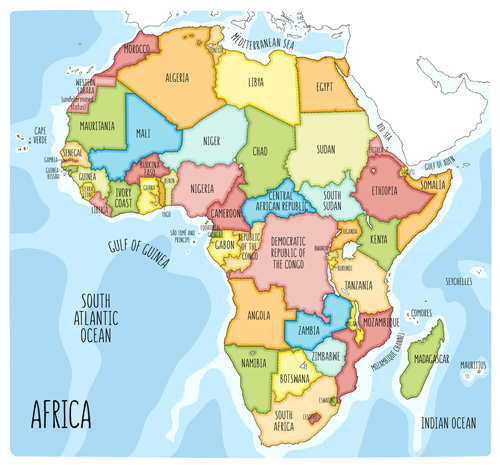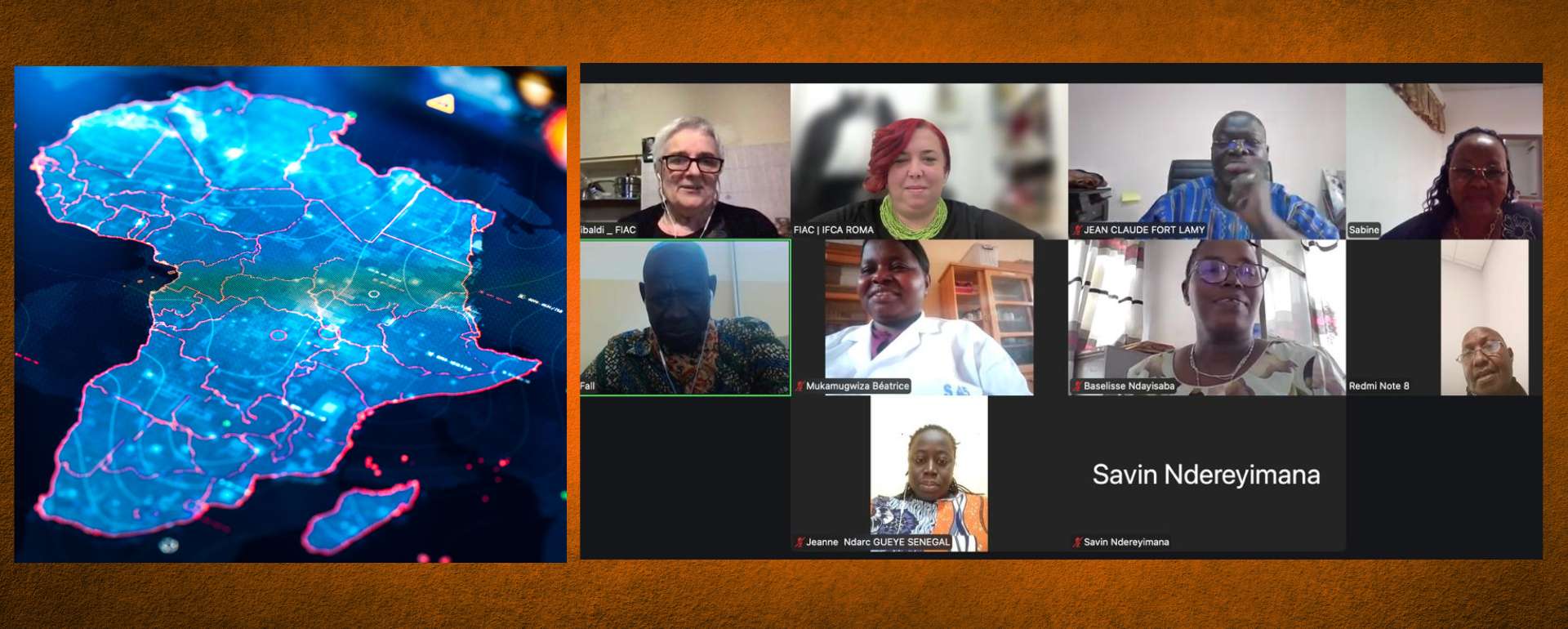The continental level is fundamental for IFCA’ s existence and is promoted and supported by member countries. One or two countries assume responsibility to coordinate and to keep contact with the member countries. The International Secretariat.Coordinators coordinate the work of the different age-groups in the different countries.
The continental level of the Church is IFCa’s point of reference at continental level.
AFRICA
In Africa, there are eight member countries and fifteen observer countries.
Member countries are countries where Catholic Action is present and is identified by the four well-known characteristics laid down in Apostolicam Actuositatem 20, is under the name of Catholic Action or any another name but is organised in a way which corresponds to the history and reality of each particular national association.
The request to be accepted as an IFCA member country has to be submitted by the Bishops’ Conference of that particular country or by the Bishop of the particular Diocese requesting to join IFCA. Through this work at Continental level, the situation in each Observer Country is being reviewed and the information is being up-dated.
Observer countries in contact with IFCA mainly through participation in continental or international initiatives.
Some countries have been in contact for some time, others have just started, and with others contact has to be resumed.
Through this continental network, vital for IFCA, information about each observer country is being up dated.
Continental Church Bodies
In Africa, the ecclesial regions in which the various countries and the CA associations, under this name or any other name, work, are very important.
Other Bodies
A process of communion among the Bishops of the Mediterranean Churches initiated by the Italian Bishops’ Conference is underway. Meetings were held in Bari in February 2020, in Florence in February 2022 and in Marseilles in September 2023
At the same time, following Pope Francis’ visit to Naples in June 2019, many academic institutions are working towards a Theology of the Mediterranean





